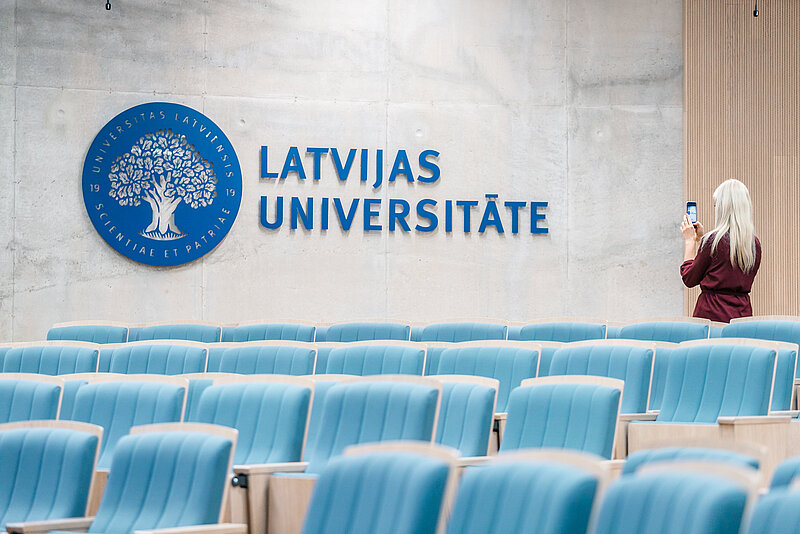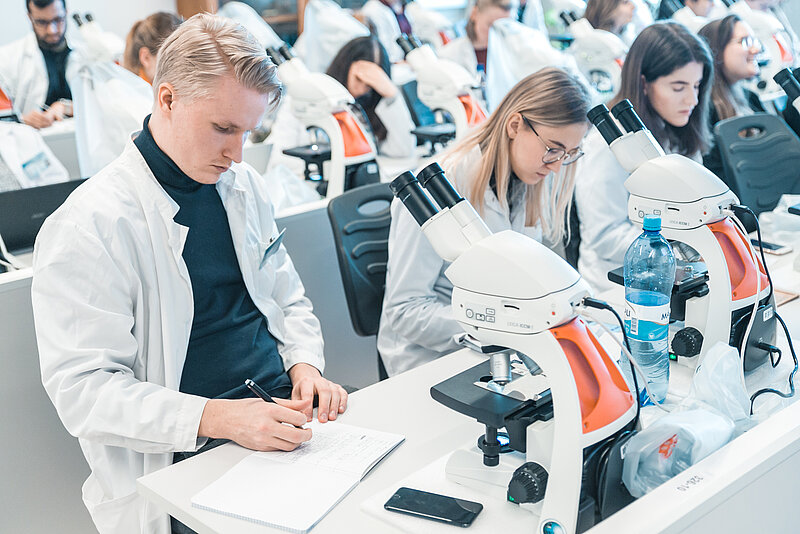
A student from the Medical faculty of the University of Latvia (UL), Aleksejs Fedulovs, wishes to pinpoint the correlation between diets, digestive system balance, as well as sugar level fluctuations and type 1 diabetes patients. With the support of the patron “Mikrotīkls” and UL, which is administrated by UL Foundation, a study is being conducted regarding “Diets, digestive system balance and sugar level fluctuation in type 1 diabetes patients”, which is led by head researcher Dr. med. Jeļizaveta Sokolovska.
Type 1 diabetes is characterized by a high sugar level in the blood, as well as absolute insulin deficiency in the patient. Being one of the main risk factors, high blood sugar is the reason the heart and blood vessels develop complications in type 1 diabetes patients. Even though the patients get regular insulin therapy, most patients are unable to recover and fail to achieve the goal of their treatment.
How is treatment efficiency evaluated?
Efficiency is usually judged by the glycated hemoglobin level, it’s presence in the blood must be below 7%. The formation of glycated hemoglobin is a process that occurs throughout the life cycle of an erythrocyteand it’s value is determined by the plasma glucose concentration over the last 3 to 4 months.
Why do glucose level fluctuations happen?
Glucose level fluctuations are related to an increased diabetic complication risk. Known glucose level fluctuation factors include – incorrect insulin dosing and diabetic gostropathy which is caused by vomiting.
Many patients fall victim to glucose level fluctuations that are caused by unknown factors. The study “Rewers M., Ludvigsson J. Environmental risk factors for type 1 diabetesm 2016” showed that the subjects that weren’t previously diagnosed with diabetes, experienced different glucose level fluctuations while eating identical meals to type 1 diabetes patients. Glucose level fluctuations were linked to different kinds of intestinal microbiome profiles that could be influenced by personalised diet programs. The data from not only this study, but also many others, has suggested a correlation between diets, digestive system balance and sugar level fluctuations in type 1 diabetes patients, which is why this study is being made.
What are the future research steps for diabetes?
Thinking about future research steps will be possible when the study about diets, digestive system balance and sugar level fluctuations in type 1 diabetes patients will have collected more data. The data will help judge which factors are worth studying in detail.
How does the scholarship help with research?
“’Mikrotīkls’ scholarship provides significant support during the course of three years which lets me spend more time for my doctoral studies and the development of my promotional project. All additional funding greatly benefits the research because time and labor can be put towards research and scientific development,” says Aleksejs.
About LU Foundation
Since 2004, the University of Latvia Foundation provides an opportunity for patrons and coop partners to support not only the University of Latvia, but also other leading Latvian universities, thus investing in the future of Latvia. UL Foundation prioritises supporting the most outstanding students and researchers, promoting the creation of a modern learning environment, as well as the construction of new and renovations of older university buildings.

 Academic Centre
Academic Centre






